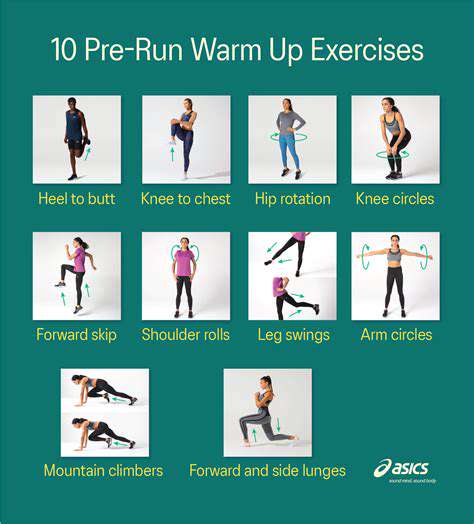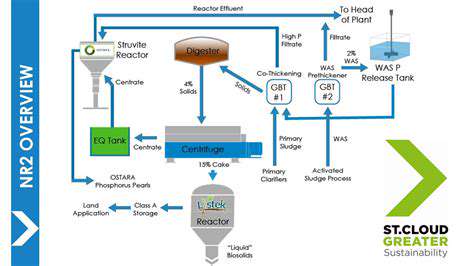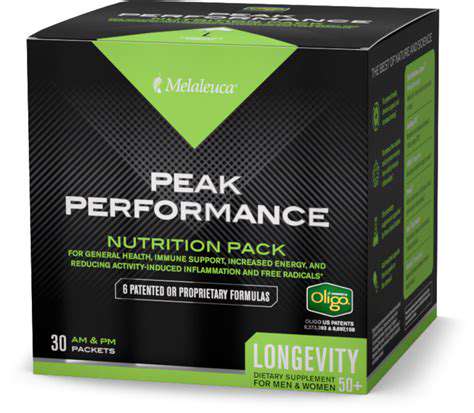Best Tips for Staying Motivated on Your Health Journey
Understanding Your Current Situation
Before setting ambitious goals, take time for honest self-reflection. Assessing where you stand today creates the foundation for meaningful progress. Consider your available time, energy levels, and existing commitments. A college student balancing coursework with a part-time job would benefit from creating study schedules that account for these realities rather than setting unrealistic expectations.
Skill evaluation matters just as much as time management. When tackling complex projects, identify prerequisite knowledge gaps first. This might involve enrolling in targeted courses, finding mentors, or dedicating focused practice time. Building competence gradually creates sustainable motivation through visible progress.
Breaking Down Large Goals into Smaller Steps
Major objectives become manageable when divided into concrete actions. Writing a novel transforms from overwhelming to achievable when approached as daily word count targets. This chunking method provides regular accomplishment milestones that fuel continued effort.
Detailed breakdowns also reveal the actual work involved, preventing underestimation of effort required. Checking off completed steps builds confidence through tangible evidence of progress toward the larger vision.
Setting Measurable and Time-Bound Goals
Vague aspirations like get fit lack motivational power compared to specific targets such as complete a 5K in twelve weeks. Quantifiable metrics and deadlines create accountability and enable progress tracking. This structure allows for mid-course adjustments while maintaining forward momentum.
Time constraints serve as healthy pressure, combating procrastination. They also force realistic assessment of what's achievable within given parameters, leading to more thoughtful goal-setting. Regular progress reviews against these benchmarks maintain focus and demonstrate advancement.
Identifying Your Why: The Intrinsic Motivation Engine

Uncovering Your Motivations
Core motivations differ from surface-level desires. Discovering what truly drives you requires peeling back layers to examine fundamental values and aspirations. This deeper understanding sustains effort when initial enthusiasm fades, making it crucial for lasting achievement.
Connecting to Your Values
Goals aligned with personal principles generate stronger commitment. Whether creativity, service, or growth drives you, this alignment transforms tasks into meaningful expressions of identity rather than chores. Such purpose-powered efforts prove more resilient to obstacles.
Examining Your Passions
Natural inclinations reveal motivational fuel sources. Notice which activities make time disappear or spark spontaneous enthusiasm. These passion indicators point toward endeavors where persistence comes more naturally. Leveraging inherent interests makes sustained effort feel less like work.
Visualizing Your Future Self
Mental rehearsal of goal achievement activates powerful motivational circuits. Regularly imagining the confidence of your accomplished future self creates an emotional connection to outcomes that pulls you forward through challenging periods.
Incorporating Healthy Habits into Your Routine: Making it Seamless
Prioritizing Mindful Eating
Conscious consumption transforms nutrition. Removing distractions during meals allows recognition of true hunger signals. This present-moment awareness naturally regulates portions while enhancing meal satisfaction. Over time, these practiced behaviors become automatic healthy habits.
Creating a Supportive Exercise Routine
Physical activity sticks when enjoyable. Experiment to discover movement forms you anticipate rather than dread. Sustainable routines blend challenge with pleasure, whether through social sports, outdoor adventures, or dance-based workouts. Consistency matters more than intensity.
Establishing Healthy Sleep Hygiene
Quality rest begins with environmental optimization. Cool, dark sleeping spaces signal the brain for restoration. Pre-bed routines that transition from stimulation to relaxation prove equally vital. These combined practices compound into transformative sleep quality improvements.
Staying Flexible and Adaptable: Navigating Setbacks and Challenges
Understanding Setbacks as Learning Opportunities
Obstacles contain hidden lessons. Analyzing missteps without self-judgment reveals adjustment opportunities. This reflective practice converts temporary failures into permanent wisdom.
Developing a Growth Mindset
Belief in developable abilities changes challenge responses. Viewing skills as expandable through effort transforms obstacles into skill-building opportunities. This perspective sustains motivation through inevitable difficulties.
Seeking Support and Mentorship
Isolation magnifies setbacks while shared burdens lighten them. Vulnerability in seeking guidance often reveals solutions invisible when struggling alone. Community provides both practical strategies and emotional reinforcement.
Read more about Best Tips for Staying Motivated on Your Health Journey
Hot Recommendations
-
*Guide to Managing Gout Through Diet
-
*Best Habits for Financial Well being
-
*How to Build a Routine for Better Mental Health
-
*How to Eat Healthy on a Budget [Tips & Meal Ideas]
-
*Guide to Practicing Self Acceptance
-
*How to Incorporate More Movement Into Your Day
-
*Guide to Managing Chronic Pain Naturally
-
*Guide to Building a Reading Habit for Well being
-
*Top 5 Weight Loss Supplements That Actually Work
-
*Best Exercises for Postpartum Recovery [Beyond Abdominal Work]











